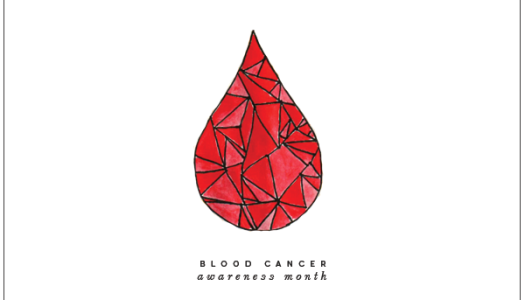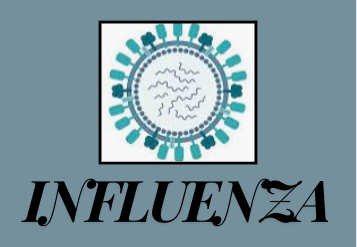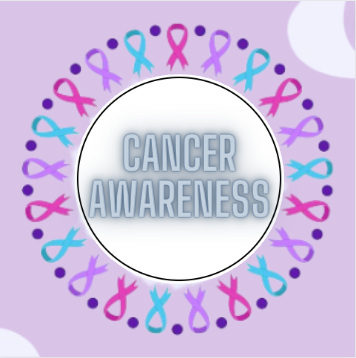
Did you know that September is National Blood Cancer Month? According to the Leukemia and Lymphoma Society, around every nine minutes, one U.S. citizen dies from a blood-related cancer. That is about 157 people per day. Blood cancer is a type of cancer where cells abnormally grow in the blood and often start in the bone marrow. This causes the blood cells to be produced incorrectly and not function properly. There are five main types of blood cancer, including leukemia, lymphoma, myeloma, myelodysplastic syndromes (MDS), and myeloproliferative neoplasms (MPN). Blood cancers can be described as acute or chronic. Acute refers to a fast-growing cancer, and chronic means growing slow-paced. Today, I will be describing to you what the five main categories of blood cancer are and what each one does, as well as their treatments.
The American SOC of Hematology says: “Leukemia, a type of cancer found in your blood and bone marrow, is caused by the rapid production of abnormal white blood cells. The high number of abnormal white blood cells are not able to fight infection, and they impair the ability of the bone marrow to produce red blood cells and platelets. Lymphoma is a type of blood cancer that affects the lymphatic system, which removes excess fluids from your body and produces immune cells. Lymphocytes are a type of white blood cell that fights infection. Abnormal lymphocytes become lymphoma cells, which multiply and collect in your lymph nodes and other tissues. Over time, these cancerous cells impair your immune system. Myeloma is a cancer of the plasma cells. Plasma cells are white blood cells that produce disease – and infection-fighting antibodies in your body. Myeloma cells prevent the normal production of antibodies, leaving your body’s immune system weakened and susceptible to infection.”
The American Cancer Society states that: “ In MDS, some of the cells in the bone marrow are abnormal (dysplastic) and have problems making new blood cells. Many of the blood cells formed by these bone marrow cells are defective. Defective cells often die earlier than normal cells, and the body also destroys some abnormal blood cells, leaving the person without enough normal blood cells. Different cell types can be affected, although the most common finding in MDS is a shortage of red blood cells (anemia).”
According to the National Cancer Institute, “Myeloproliferative neoplasms are a group of diseases in which the bone marrow makes too many red blood cells, white blood cells, or platelets.” As you can see, each of these is unique and sort of complicated.
Mayo Clinic says: “Leukemia symptoms vary, depending on the type of leukemia, however, some common symptoms include: fever or chills, persistent fatigue, weakness, frequent or severe infections, losing weight without trying, swollen lymph nodes, enlarged liver or spleen, easy bleeding or bruising, recurring nosebleeds, tiny red spots in your skin, excessive sweating, especially at night, bone pain or tenderness. Some symptoms of lymphoma may include painless swelling of lymph nodes in your neck, armpits, or groin, persistent fatigue, fever, night sweats, shortness of breath, unexpected weight loss, and itchy skin. Signs and symptoms of multiple myeloma can vary, and early in the disease, there may be none.
When signs and symptoms do occur, they can include; Pain, especially in your spine or chest, nausea, constipation, loss of appetite, mental fogginess or confusion, fatigue, frequent infections, weight loss, weakness or numbness in your legs, and excessive thirst. People with myelodysplastic syndromes (MDS) might not experience signs and symptoms at first. In time, myelodysplastic syndromes might cause: Fatigue, shortness of breath, unusualness you paleness, which occurs due to a low red blood cell count (anemia), easier or unusual bruising or bleeding, which occurs due to a low blood platelet count, pinpoint sized red dots just beneath the skin that are caused by bleeding, frequent infections which occur due to low white blood cell count. Some symptoms of MPN are: feeling tired, weak or short of breath, usually because of anemia, pain or fullness below your ribs on the left side due to an enlarged spleen, easy bruising, easy bleeding, excessive sweat during sleep, fever and bone pain.”
According to Mayo Clinic, “Depending on the condition, treatment could include: Biological therapy, bone marrow transplant, chemotherapy, radiation therapy, stem cell transplant, or targeted therapy. Innovative treatments studied at the Mayo Clinic include those that harness the body’s immune system, such as virotherapy, which uses an engineered virus, such as measles, to kill multiple myeloma cells; drugs called immune checkpoint inhibitors that help the immune system recognize and target lymphoma cells; and a procedure called chimeric antigen receptor (CAR)-T cell therapy. CAR-T cell therapy takes a person’s germ-fighting T cells, engineers them to attack cancer cells, and infuses the cells back into the body.”
Blood cancers equal about 10% of cancers diagnosed in the U.S. each year. Getting routine blood work and checkups at the doctor’s office can help detect early stages of these cancers. Although there is no clinical proof of the cause of these diseases, doctors recommend keeping a healthy lifestyle to help decrease your chances of getting not only this cancer but so many others too.










